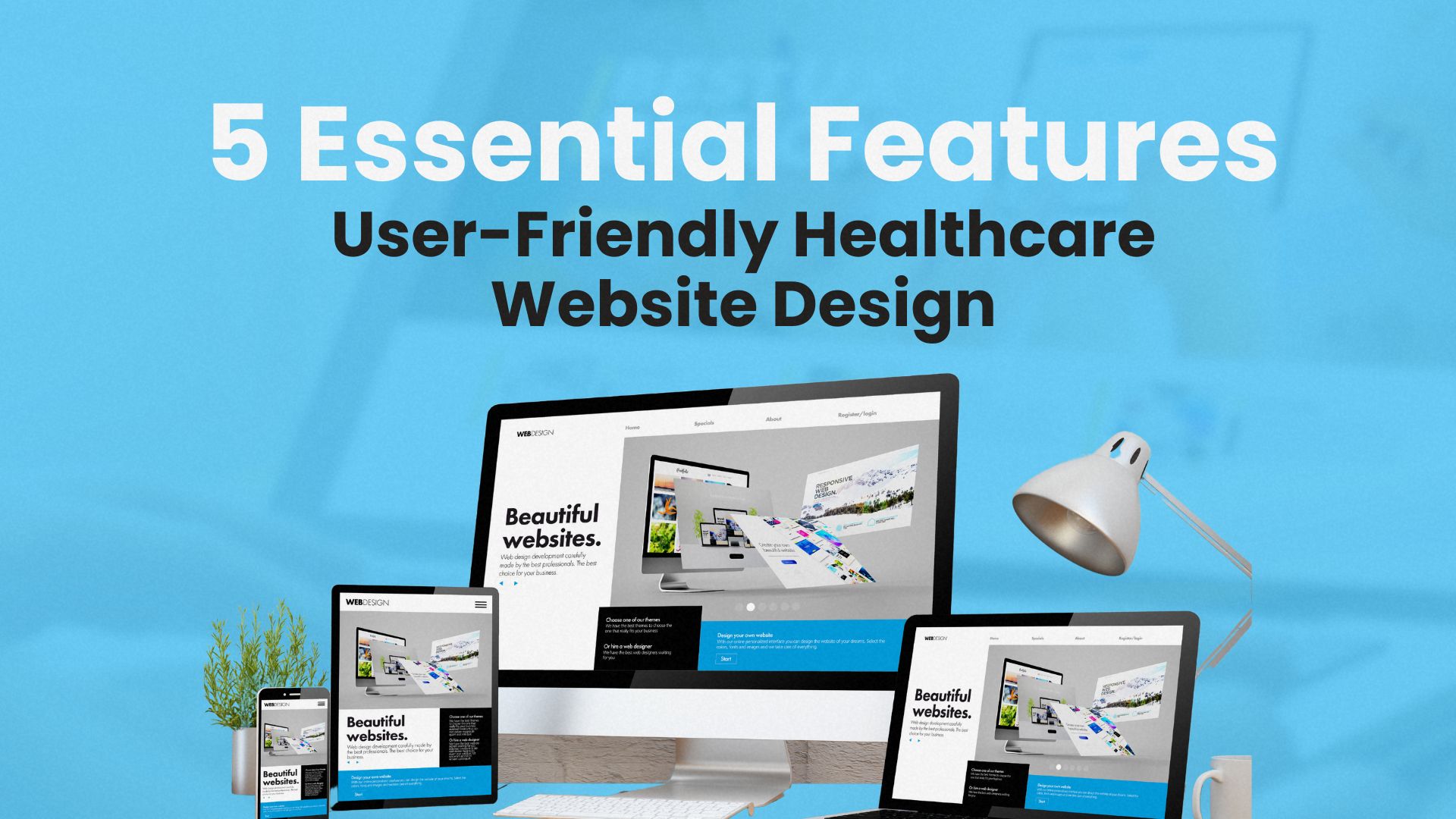The importance of having a user-friendly healthcare website design in the fast-paced digital world of today cannot be emphasized. The increasing dependence on health related websites has made it essential for healthcare websites to have a user-friendly interface.
The abundance of information available on what constitutes a good website may overwhelm you, especially since most of the guidance isn’t specifically relevant to websites for healthcare providers. A distinct approach to site design that sets your practice apart from other sectors is necessary.
In this blog post, we’ll look at five key components that go into making a user friendly healthcare website .When you’re redesigning your healthcare website, these are the five things you should try to incorporate.
Intuitive Navigation
The navigation mechanism of any healthcare website is the cornerstone of its user-friendly design. It should be easy for users to locate the information they need without becoming bogged down in a confusing web . Having a logical and unambiguous navigation structure guarantees that vital parts, including services, contact information, and announcements, are easily accessed by visitors.
A thoughtfully planned menu with unambiguous labeling is necessary to accomplish this. Organize content logically into categories and make sure the portions that are accessed the most are shown prominently. Furthermore, contemplate integrating a search feature that facilitates consumers in effortlessly locating particular information.
Responsive Design
The navigation mechanism of any healthcare website is the cornerstone of its user-friendly design. It should be easy for users to locate the information they are looking for.
A thoughtfully planned menu with unambiguous labeling is necessary to accomplish this. Organize content logically into categories and make sure the portions that are accessed the most are shown prominently. Furthermore, contemplate integrating a search feature that facilitates consumers in effortlessly locating particular information.
User-Friendly Forms
Healthcare websites must have forms that are easy to use, especially if they ask visitors to fill out medical histories or seek appointments. Forms that are too long may discourage users from entering important information, which will reduce the effectiveness of your healthcare website design.
Divide the form-filling procedure into manageable chunks to streamline the process. Label things succinctly and clearly, and when needed, include useful tooltips.
Users may input information accurately and quickly by utilizing tools like auto-fill and real-time validation, which can further improve the user experience.
Accessible Content
Any user, regardless of ability, should be able to access the content on a healthcare website in order for it to be considered really user-friendly. Take into account the wide variety of users, including those with impairments, who might visit the website.
To ensure that everyone can view and comprehend the provided content.Please make sure the website conforms with web accessibility guidelines (WCAG) and consider incorporating professional web development services.
Provide transcripts for multimedia information, make sure header structures are correct, and provide informative alt text for photos. Put readability first by selecting a readable font and keeping the text’s backdrop color in good contrast to the background. In addition to improving user experience, an inclusive website will demonstrate your commitment to diversity.
Engaging Visuals and Multimedia
Attractive images are essential for holding website users’ interest. Finding a balance between utility and aesthetics is crucial, though. Videos, infographics, and high-quality photos can all aid in simplifying and making complex medical information easier to understand.
Make sure your photos load quickly, and think about using multimedia to increase user interaction. For example, educational films that describe typical medical procedures or graphic user manuals for the website can be helpful additions.
Make sure that no multimedia content affects the speed at which the website loads and is compatible with mobile devices.
Conclusion
A careful evaluation of the user experience is necessary for a user-friendly healthcare website design. All of the components work together to create a website that not only accomplishes its goals but also makes a good impression on users. These elements range from simple navigation to easily accessible content and eye-catching graphics.At Codegurus, they provide world’s best web design services at affordable prices,their team of highly skilled experts are available 24*7 for their services.
You may improve customer satisfaction and create a dependable and easily accessible online presence for your healthcare website by implementing these five crucial elements into its design. Making a lasting impression in the healthcare sector and distinguishing out in the competitive market for web development services and agencies requires putting the user experience first.
FAQ’s
How do I create a medical practice website?
When creating a medical site it is helpful to start with a couple of examples of design for healthcare websites as an inspiration. By incorporating the principles of design, user experience and information architecture as well as accessibility will ensure that your site is beneficial and useful for patients.
The online templates designed specifically for medical practice could be a good starting place for those who don’t have an in-house design team.
Be sure to test your designs with several users from your target group to ensure that you meet their needs and offer an enjoyable user experience.
Can a healthcare web design agency help me with online appointment scheduling features?
Yes, a lot of these companies can integrate online appointment scheduling functions to your site. This makes it easy for patients to make appointments, enhancing the experience for patients and efficiency in the office.
Can these agencies work with healthcare organizations of all sizes?
Yes, Healthcare web design firms typically work with healthcare companies that range including small practices to huge hospitals. They can tailor their services to meet your company’s particular needs and budget.

